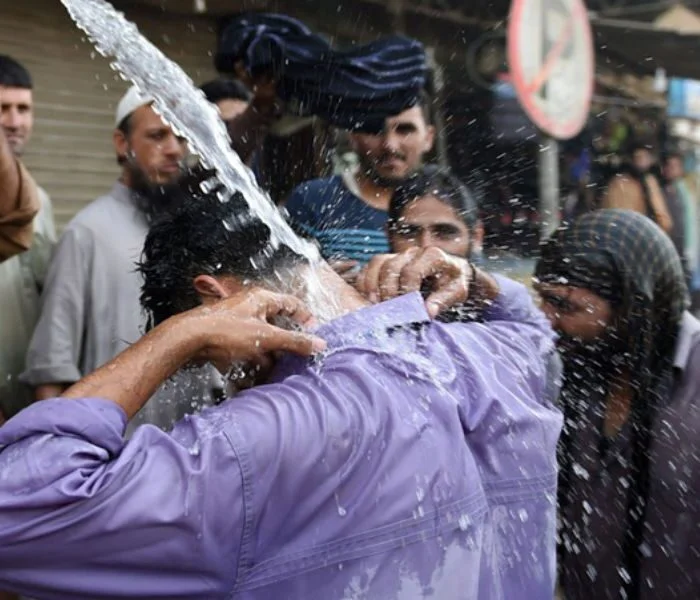The city has been sweltering under severe heatwave conditions for the eighth consecutive day, with the sea breeze disrupted by a low-pressure area southeast of Karachi.
Chief Meteorologist Dr. Sardar Safaraz informed Dawn that these weather conditions are the most intense since the 2015 heatwave, which saw temperatures peak at 44.8°C. He noted, “This year, we have recorded a maximum temperature of 42°C, with the monthly average remaining four degrees Celsius higher than usual.”
Dr. Safaraz highlighted that high humidity levels exacerbate the situation, making the heat feel much more intense. “Humidity has consistently been at or above 50%, raising the feels-like temperature significantly. On Sunday, the temperature reached 39.2°C, but the feels-like temperature surged to 55°C at 5 pm due to 54% relative humidity.”
Heatwave Comparisons and Climate Impact
Both the 2015 and 2024 heatwaves were attributed to low atmospheric pressure areas. Dr. Safaraz emphasized that Karachi’s specific challenge is the high humidity, which greatly increases the discomfort of hot weather. He also pointed out that the minimum temperature for June this year has remained unusually high, averaging 29-30°C.
“Global warming has altered weather patterns, leading to more frequent, prolonged, and severe weather events,” he said, referencing a World Weather Attribution study linking the 2022 floods in Pakistan to climate change.
Rising Temperatures Over Decades
Dr. Aamir Alamgir, a senior teacher and researcher at Karachi University’s Institute of Environmental Studies, noted significant long-term temperature increases. “Karachi’s average yearly temperature is 25.9°C, with an average annual precipitation of roughly 194 millimeters. Over the past 59 years, the mean temperature has increased by 2.25°C, which is tenfold the global temperature increase.”
Humidity in Karachi varies from 58% in December to 85% in August. “During the 2015 heatwave, the heat index reached 66°C,” Dr. Alamgir said, stressing the severe impact of combined heat and humidity, particularly on the city’s lower socioeconomic strata, which often suffer from damaged water supply networks and frequent power outages.
Heatstroke Fatalities
On Sunday, three individuals succumbed to heatstroke at Abbasi Shaheed Hospital and Jinnah Postgraduate Medical Centre. The Met department reported that at 10:00 am, the temperature was 35°C with 63% humidity, creating a heat index of 47°C. By 5:00 pm, the heat index had climbed to 55°C with the temperature at 39.2°C and 54% relative humidity.
Dr. Safaraz expressed hope that the low-pressure area would completely dissipate by Monday morning, bringing relief from the oppressive heatwave conditions.











